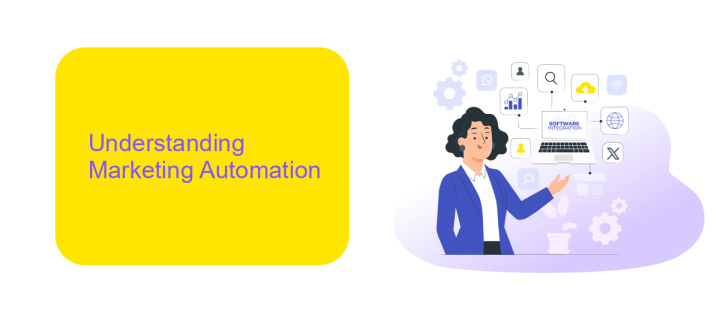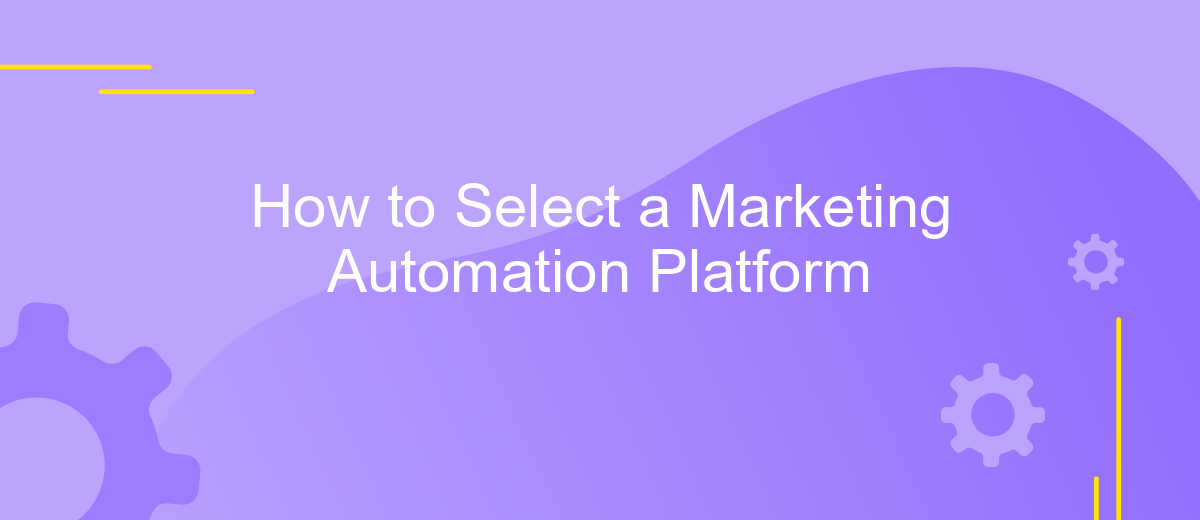How to Select a Marketing Automation Platform
In today's rapidly evolving digital landscape, selecting the right marketing automation platform is crucial for businesses aiming to streamline their marketing efforts and enhance customer engagement. With numerous options available, finding the perfect fit can be overwhelming. This guide will walk you through key considerations and essential features to look for, ensuring you make an informed decision that aligns with your company's goals and growth strategy.
Introduction
In today's fast-paced digital landscape, the right marketing automation platform can be a game-changer for businesses striving to enhance customer engagement and streamline operations. As companies seek to optimize their marketing efforts, selecting the appropriate platform becomes a critical decision. With numerous options available, understanding the key features and benefits of each can guide businesses toward a solution that best aligns with their goals.
- Identify your business needs and objectives.
- Evaluate the platform's integration capabilities with existing systems.
- Consider user-friendliness and ease of implementation.
- Analyze the pricing model and scalability options.
- Assess customer support and training resources.
Choosing the right marketing automation platform requires careful consideration of these factors to ensure a seamless fit with your business strategy. By conducting thorough research and aligning the platform's capabilities with your marketing goals, you can enhance efficiency, drive growth, and deliver personalized experiences to your audience. Ultimately, the right platform will empower your team to focus on creativity and innovation, rather than being bogged down by manual processes.
Understanding Marketing Automation

Marketing automation refers to the use of software and technology to streamline, automate, and measure marketing tasks and workflows. This approach enables businesses to enhance operational efficiency and grow revenue faster by automating repetitive tasks such as email marketing, social media posting, and ad campaigns. By leveraging marketing automation, companies can deliver personalized experiences to their customers at scale, nurturing leads and guiding them through the sales funnel with minimal manual intervention.
Understanding the capabilities of a marketing automation platform is crucial for selecting the right one for your business needs. These platforms often integrate with existing systems to ensure seamless data flow and communication across various marketing channels. For instance, ApiX-Drive is a service that facilitates such integrations, allowing businesses to easily connect their marketing tools and synchronize data. This ensures that all parts of the marketing strategy work in harmony, providing a holistic view of customer interactions and enabling more informed decision-making. By effectively utilizing marketing automation, businesses can achieve greater efficiency and improved ROI.
Key Considerations for Platform Selection

Choosing the right marketing automation platform is crucial for optimizing your marketing efforts and achieving business goals. It's essential to assess various factors to ensure the platform aligns with your organization's needs and objectives. A well-chosen platform can streamline processes, enhance customer engagement, and provide valuable insights.
- Scalability: Ensure the platform can grow with your business and handle increased data and user demands.
- Integration: Check if it seamlessly integrates with your existing tools and systems, such as CRM and analytics software.
- User-Friendliness: Evaluate the platform's interface and ease of use for your team members.
- Cost: Consider the pricing structure and ensure it fits within your budget while offering necessary features.
- Support and Training: Look for platforms that provide comprehensive support and training resources.
By carefully evaluating these factors, you can select a marketing automation platform that not only meets your current requirements but also supports future growth and innovation. This strategic choice can lead to improved efficiency, better customer relationships, and ultimately, increased revenue.
Evaluation and Comparison

When selecting a marketing automation platform, it's crucial to conduct a thorough evaluation and comparison to ensure the chosen solution aligns with your business needs and objectives. Start by identifying the specific features and functionalities that are essential for your marketing strategy, such as email marketing, lead management, and analytics capabilities.
Next, consider the scalability and integration options of the platform. As your business grows, your marketing automation needs may evolve, so it's important to choose a platform that can adapt and integrate with other tools and systems you use. Additionally, evaluate the user interface and ease of use, as a complex system can hinder adoption and efficiency.
- Assess the platform's pricing model and total cost of ownership.
- Look for customer reviews and case studies to gauge user satisfaction.
- Verify the level of customer support and training provided.
- Ensure data security and compliance with relevant regulations.
Finally, conduct a trial or demo to experience the platform firsthand. This will allow you to test its features, assess its performance, and determine if it truly meets your marketing automation needs. A well-informed decision will lead to improved marketing efficiency and effectiveness.
- Automate the work of an online store or landing
- Empower through integration
- Don't spend money on programmers and integrators
- Save time by automating routine tasks
Implementation and Best Practices
Implementing a marketing automation platform requires careful planning and execution to ensure a seamless transition and optimal performance. Begin by assembling a cross-functional team that includes marketing, IT, and sales representatives to oversee the process. This team should outline clear goals and timelines, ensuring each department's needs are addressed. It's crucial to conduct a thorough audit of your existing marketing processes to identify gaps and opportunities for automation. Once the platform is selected, focus on data migration and integration with existing systems. Tools like ApiX-Drive can facilitate these integrations, offering a streamlined approach to connecting various applications without extensive coding knowledge.
Best practices for successful implementation include comprehensive training for all users to maximize the platform's capabilities. Encourage ongoing feedback and be prepared to make iterative adjustments based on user experience and performance metrics. Regularly review automation workflows to ensure they align with business objectives and market trends. Additionally, maintain a strong focus on data privacy and compliance, ensuring that all automated processes adhere to relevant regulations. By following these steps, businesses can leverage marketing automation to enhance efficiency, improve customer engagement, and drive growth.
FAQ
What key features should I look for in a marketing automation platform?
How can I ensure that the platform integrates well with my existing systems?
What are the cost considerations when choosing a marketing automation platform?
How can I assess the scalability of a marketing automation platform?
What should I consider regarding customer support and training?
Time is the most valuable resource in today's business realities. By eliminating the routine from work processes, you will get more opportunities to implement the most daring plans and ideas. Choose – you can continue to waste time, money and nerves on inefficient solutions, or you can use ApiX-Drive, automating work processes and achieving results with minimal investment of money, effort and human resources.


